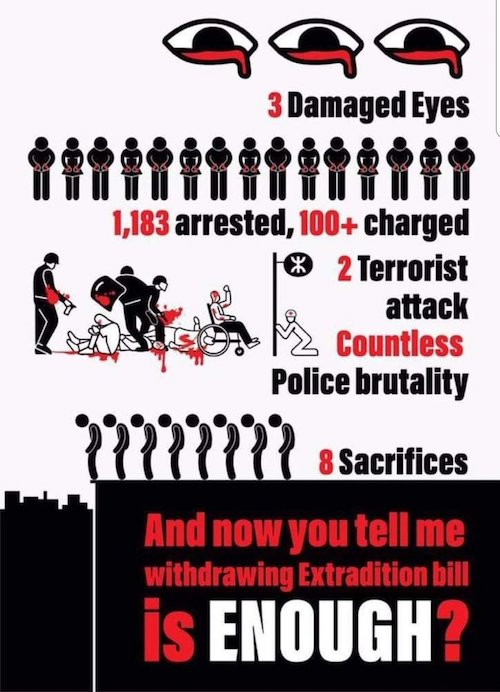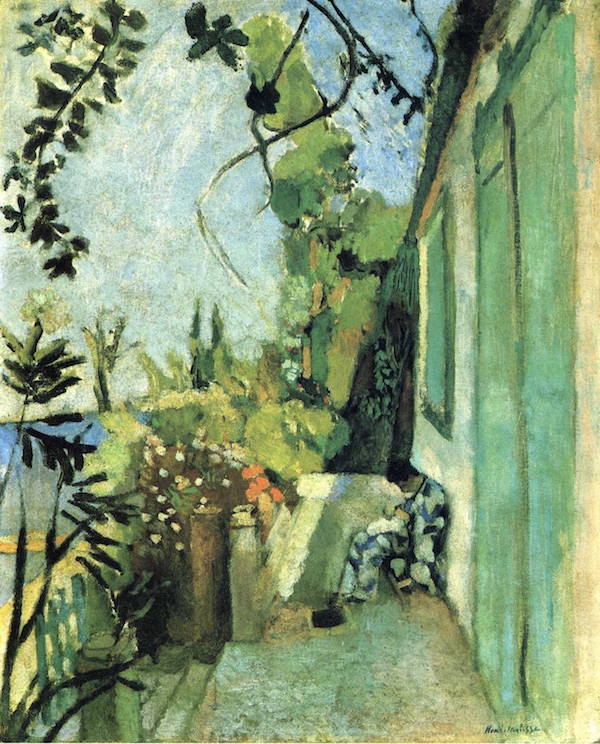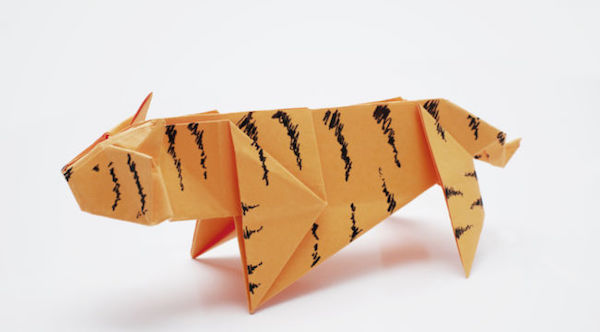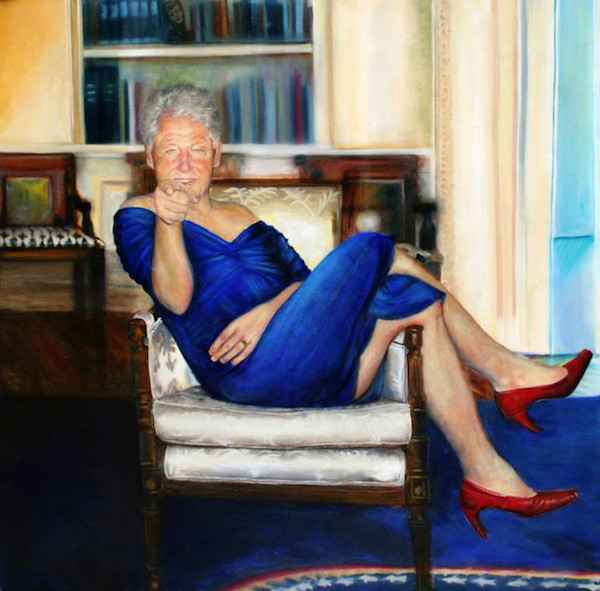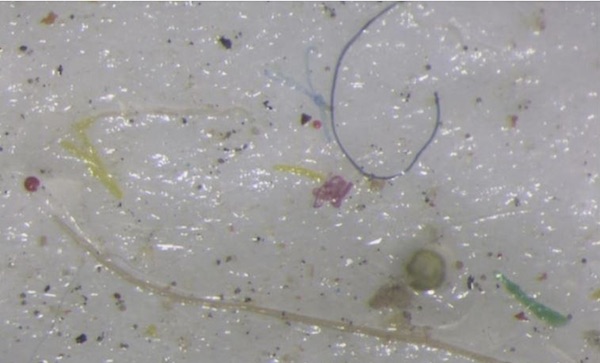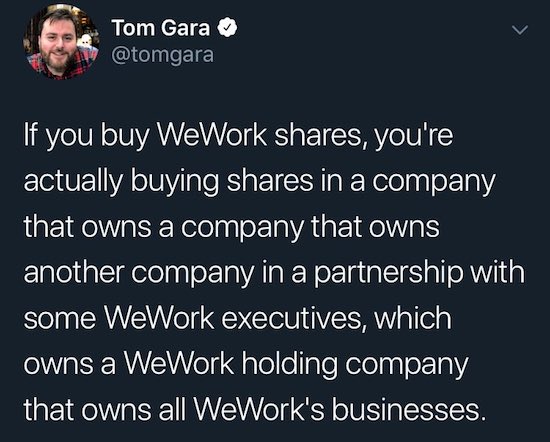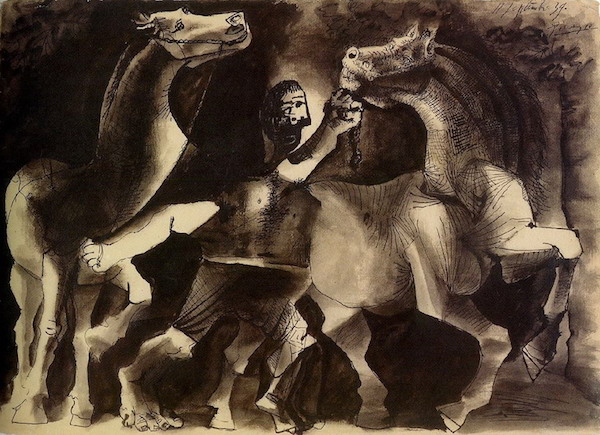
Pablo Picasso Horses and person 1939

To everyone used to receiving Automatic Earth posts in their email, I’m sorry but since yesterday they’re suddenly bouncing again en masse. This makes me very tired by now, but I’ll look for a solution. I suspect there may be a connection between this and Google accusing me of violating their rules, without telling me what rules I’m supposed to have violated.


I’ll keep saying they should have gone to the courts much sooner. But it’s unclear what the courts can do.
• Boris Johnson Will Challenge Law Stopping No-Deal Exit In Court (Ind.)
Boris Johnson will go to court to challenge the order from parliament to delay Brexit, the foreign secretary has revealed. Dominic Raab insisted the government would not break the law – after MPs passed legislation requiring him to seek an Article 50 extension – but said it would not comply either. Vowing to “test to the limit” what the new law demands, Mr Raab said: “We will look very carefully, legally at what it requires and what it doesn’t require.” And, pointing to the failed legal actions to stop parliament being suspended, he told Sky’s Sophy Ridge programme: “We had two legal challenges last week and we won both of those.”
The comments suggest the controversy is heading for the Supreme Court in late October, with Dominic Cummings, Mr Johnson’s key aide, believed to be convinced there is a legal way out. Mr Raab also dismissed a warning by a former director of public prosecutions that the prime minister is heading for jail if he flouts the law as “ridiculous”. Shami Chakrabarti, Labour’s shadow attorney general, condemned the comments, saying: “Is that what we say to our kids? Is that what we say to vulnerable kids? It’s irresponsible and elitist.”

Boris has claimed progress in talks with the EU, but the EU has said there’s no such thing.
• UK Minister Amber Rudd Resigns, Says Unclear Who Is Running Country (Ind.)
Amber Rudd has claimed it is unclear who is running the country following her shock resignation from the government. The former work and pensions secretary said she did not think the cabinet was having “proper discussions about policy”. When asked who was running the country, if not the cabinet, she told The Andrew Marr Show: “If I knew that I would have perhaps had further conversations with the prime minister or them.” Ms Rudd, who announced her resignation from the cabinet on Saturday, said she quit because she had not seen enough evidence of planning for a no-deal Brexit.
She claimed she was shown a “one-page summary” when she asked for evidence of the government’s work in negotiating a deal with the European Union. “It’s 80 to 90 per cent of government time going into preparing for no deal,” she said. “It’s disproportionate.” She added: “There is no evidence of the deal. There is no formal negotiation taking place. “I think we should be doing so much more to get the deal.”

Outspoken.
• Churchill’s Grandson Blasts ‘Unreliable’ Boris And ‘Fraud’ Rees-Mogg (Mirror)
Sacked Tory rebel MP Sir Nicholas Soames says Boris Johnson is “nothing like” his grandfather Sir Winston Churchill – and called Jacob Rees-Mogg an “absolute fraud”. Sir Nicholas, 71, tore into the Prime Minister and his right-hand man in a scathing interview as “unreliable” Mr Johnson’s Brexit strategy lay in tatters. The MP for 37 years said of the PM: “Boris Johnson is nothing like Winston Churchill. “I don’t think anyone has called Boris a diplomat or statesman.
“We all know the pluses and minuses, everyone he has worked for says the same thing: he writes beautifully [but he’s] deeply unreliable.” And of Mr Rees-Mogg, he was even more unforgiving, telling the Times: “He is in serious danger of believing his own shtick. “He is an absolute fraud, he is a living example of what a moderately cut double-breasted suit and a decent tie can do with an ultra-posh voice and a bit of ginger stuck up his arse.” Sir Nicholas blasted Mr Rees-Mogg after the Leader of the House was pictured slouching on the front bench like a sunbed as the Prime Minister suffered one of several humiliating defeats this week.

View from Canada. Whose head of state still is Elizabeth. “British politics today is what results from the collision of an unstoppable force, an immovable object and a clown car.”
• How Bad Is Boris Johnson? We Can’t Even Find The Words (Globe & Mail)
We begin this editorial with an apology to you, our faithful readers. In March, we described the Brexit situation, then careening through its third year and nowhere close to resolution, as an “omnishambles.” An omnishambles is a state of utter chaos, total disorder and perfect mismanagement – which brings us to our apology. If you’ve been paying any attention to British Prime Minister Boris Johnson, you know that, in declaring United Kingdom politics to have reached peak shambolic six months ago, we spoke too soon. Oh, did we ever. Because if the Conservative government was making an omnishambles of Brexit back in the spring – a happy era now remembered as a halcyon age of a merely half-hearted appetite for national self-destruction – then what words can adequately describe the scale of Mr. Johnson’s achievements?
Megashambles? Summa cum laude shambles? Tyrannosaurus shambles? The-Chernobyl-reactor-just-exploded-and-the-dosimeter-reads-15,000-roentgen shambles? Mr. Johnson is the author of 11 books, some admittedly banged out in the careless haste that is his style. But this week, without breaking a sweat, the PM penned the Odyssey and the Iliad of shambles. He faced his first votes in Parliament and lost them; lost his minority government’s governing majority; sacked 21 of his own MPs, including his party’s longest-serving member and Winston Churchill’s grandson; provoked his own brother into resigning from cabinet, citing a conflict between “family loyalty and the national interest”; and lost control of the House of Commons while remaining so offside the chamber’s confidence that it will not yet allow him to resolve the matter by calling an election.
Mr. Johnson did all that, and more, in the space of two days. What will tomorrow bring? British politics today is what results from the collision of an unstoppable force, an immovable object and a clown car.

Leaving should still be the priority.
• Trump Abruptly Cancels Afghan Peace Deal, Camp David Meeting With Taliban (BBC)
US President Donald Trump says he has called off peace negotiations with the Taliban that sought to end America’s 18-year war in Afghanistan. Mr Trump tweeted he had been set to meet Afghan President Ashraf Ghani and senior Taliban leaders on Sunday. But he cancelled the secret meeting at his Camp David retreat after the militants admitted they were behind a recent attack that killed a US soldier. The US invaded Afghanistan and overthrew the Taliban in 2001. The militants had provided a safe haven for the al-Qaeda network to plan the 11 September 2001 attacks on the US. A source from the Taliban’s political office in Doha told the BBC that the group was set to hold an “urgent internal meeting” to discuss Mr Trump’s decision.
A meeting with the Taliban at Camp David, just ahead of the 18th anniversary of 9/11, would have been an extraordinary diplomatic move by the US president. The top US negotiator had announced a peace deal “in principle” on Monday. It was the result of nine rounds of talks between the US and Taliban representatives, held in Doha, the capital of the Gulf state of Qatar. Mr Trump’s tweets on Saturday evening appeared to put an end to nearly a year of painstaking negotiations which had excluded the Afghan government in Kabul, dismissed by the Taliban as American puppets. “Unfortunately, in order to build false leverage, [the Taliban] admitted to an attack in Kabul that killed one of our great great soldiers,” the president tweeted.

I like.
• Ukraine And Russia Exchange Prisoners In Landmark Deal (BBC)
Russia and Ukraine have completed a long-awaited exchange of prisoners. Those freed include 24 Ukrainian sailors and – controversially – a “person of interest” over the downing of flight MH17 which killed 298 people. The swap is hoped to ease tensions between the two neighbours. Greeting the Ukrainians at the airport, President Volodymyr Zelensky said: “We have to do all the steps to finish this horrible war.” Russia said it was glad its citizens had returned home. Relations between the two countries deteriorated dramatically in 2014, when Russia annexed Ukraine’s Crimean peninsula and Russian-backed rebels began an insurgency in two regions of eastern Ukraine.

The trade war can only be part of it.
• China’s August Exports Unexpectedly Shrink, Imports Remain Weak (R.)
China’s exports unexpectedly fell in August while imports shrank for a fourth month, pointing to further weakness in the world’s second-largest economy and underlining a pressing need for more stimulus as the Sino-U.S. trade war escalates. Beijing is widely expected to announce more support measures in coming weeks to avert the risk of a sharper economic slowdown as the United States ratchets up trade pressure, including the first cuts in some key lending rates in four years. On Friday, the central bank cut banks’ reserve requirements for the seventh time since early 2018 to free up more funds for lending, days after a cabinet meeting signaled that more policy loosening may be imminent.
August exports fell 1% from a year earlier, the biggest fall since June, when it fell 1.3%, customs data showed on Sunday. Analysts had expected a 2.0% rise in a Reuters poll after July’s 3.3% gain. That’s despite analyst expectations that looming tariffs may have prompted some Chinese exporters to bring forward or “front-load” U.S.-bound shipments into August, a trend seen earlier in the trade dispute. Many analysts expect export growth to slow further in coming months, as evidenced by worsening export orders in both official and private factory surveys. More U.S. tariff measures will take effect on Oct. 1 and Dec. 15. Sunday’s data also showed China’s imports shrank for the fourth consecutive month since April. Imports dropped 5.6% on-year in August, slightly less than an expected 6.0% fall and unchanged from July’s 5.6% decline.

Pon Zi.
• China: A Paper Tiger In A Fragile Economy (LN)
We typically imagine the Chinese entrepreneur crunching numbers, working around the clock to boost the economy, and repeating Communist propaganda about the West being the supreme devil. But we might have it wrong. Considering that the major source of funding for tens of thousands of companies in China originates from the central bank’s printing press, the reality could be businessmen and employees getting plastered on baijiuand beating each other to death with Pokémon cards during office hours. Think of it as the Eastern version of The Wolf of Wall Street.
[..] Even prior to the trade war, the Chinese government had employed a series of measures to reverse the slump. Thanks to the dispute with the Americans, Beijing’s growth prospects are bearish, projected to fall to a 30-year low of 6.2% in the second quarter of 2019. Because of this, analysts anticipate the PBOC will impose another 50-basis-point RRR decrease. In addition, observers prognosticate that the central bank could cut at least one of its key policy interest rates later this month. This would be the first time since 2015. The routine intervention and stimulus have ostensibly metastasized the economy into an addict, reliant on its next fix. So, can the Chinese economy survive without the state?
In the last five years, China’s M2 money supply – a measurement of the money supply that includes cash, checking deposits, and liquid assets – has ballooned 120%. Since the country is being paralyzed by the trade spat and other negative trends that threaten its foundation, China is not showing any signs that it is ready to hit the pause button on money-printing. In fact, judging by previous remarks by PBOC heads, Beijing might rev it up even more, especially if the downturn intensifies. But can China print to infinity? It may have to because seemingly every area of the economy counts on being propped up by the Communists through cash injections, stimulus projects, and bailouts.

“He was the master when it came to covering up the kingdom’s role in 9/11..”
• Robert Mueller Helped Saudi Arabia Cover Up Its Role In 9/11 Attacks (NYP)
After a lengthy investigation, special counsel Robert Mueller charged Russia made “multiple, systematic efforts to interfere in our election” and said the incursion “deserves the attention of every American.” But former FBI investigators say their old boss didn’t feel the same concern when they uncovered multiple, systemic efforts by the Saudi government to assist the hijackers in the lead-up to the 9/11 attacks — a far more consequential, to say nothing of deadly, foreign influence operation on America. As the head of the FBI at the time, they say Mueller was not nearly as interested in investigating that espionage conspiracy, which also involved foreign intelligence officers. Far from it, the record shows he covered up evidence pointing back to the Saudi Embassy and Riyadh — and may have even misled Congress about what he knew.
9/11 victims agree. “He was the master when it came to covering up the kingdom’s role in 9/11,” said survivor Sharon Premoli, who was pulled from the rubble of the World Trade Center 18 years ago. “In October of 2001, Mueller shut down the government’s investigation after only three weeks, and then took part in the Bush [administration’s] campaign to block, obfuscate and generally stop anything about Saudi Arabia from being released,” added Premoli, now a plaintiff in the 9/11 lawsuit against Saudi Arabia. In fact, Mueller threw up roadblocks in the path of his own investigators working the 9/11 case, while making it easier for Saudi suspects to escape questioning, multiple case agents told me. Then he deep-sixed what evidence his agents did manage to uncover, according to the 9/11 lawsuit against the Saudis.

Pepe with Lula and Dilma Rousseff, astonished at the changes in the country.
• On the Road to Interview Lula, Into a Brazilian Black Hole (Pepe Escobar)
We were just beginning to hit cruising speed in our wide-ranging, 2 hour and 10 minute world exclusive interview with former President Luis Inacio Lula da Silva in his prison at the Federal Police building in Curitiba, in southern Brazil. And then it hit us hard when he told us: “The US was very much afraid when I discussed a new currency and Obama called me, telling me, ‘Are you trying to create a new currency, a new euro?’ I said, ‘No, I’m just trying to get rid of the U.S. dollar. I’m just trying not to be dependent.’”
It was the foundation stone of what would build into a complex, rolling Hybrid War coup, from NSA spying on the Brazilian government and leading national companies, to the Car Wash corruption investigation (now demolished as a monster racket) to the impeachment of President Dilma Rousseff, the imprisonment of Lula, and the emergence of the Purveyor of Chaos, Jair Bolsonaro. My journey started in Cambodia. I had spent hours wandering around Beng Mealea, the jungle squeezing the stony repose of the Angkorian ruins, meditating on the rise and fall of empires. The message popped up on my phone in the dead of night: the request for an interview with Lula, placed five months ago, had been approved. How soon could I get to Sao Paulo?

